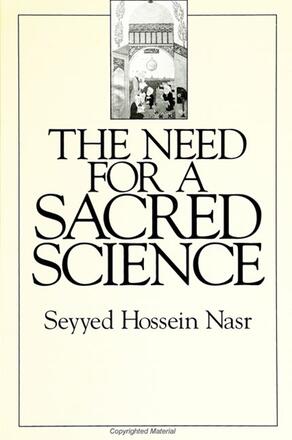
The Need for a Sacred Science
Alternative formats available from:
Description
This book deals with the meaning of a science rooted in the sacred, the metaphysical foundation of such science, its contrast to modern science and its pertinence to some of the major issues facing humanity today. In the first part, the author turns to the fundamental question of the multiplicity of sacred forms. He discusses why it is necessary in the contemporary world to treat sacred science in the context of diverse religions. He also deals with the importance of sacred science in providing a meaningful study that would remain religiously significant of religions themselves.
Reviews
"This work is a brilliant blending of sound scholarship and spiritual vision." — Jacob Needleman, San Francisco State University
"This book brings together in a focused and comprehensive treatment Nasr's ideas that have been scattered. It provides an integrated overview of the breadth and depth of Nasr's thought." — Yvonne Haddad, University of Massachusetts.